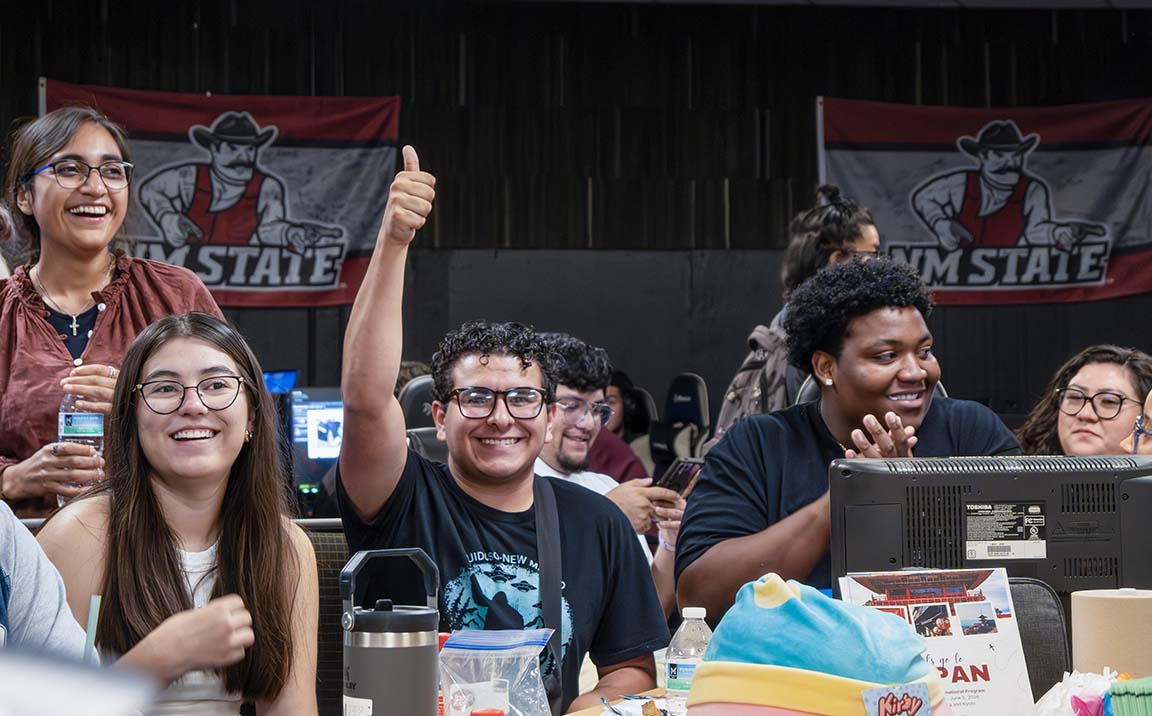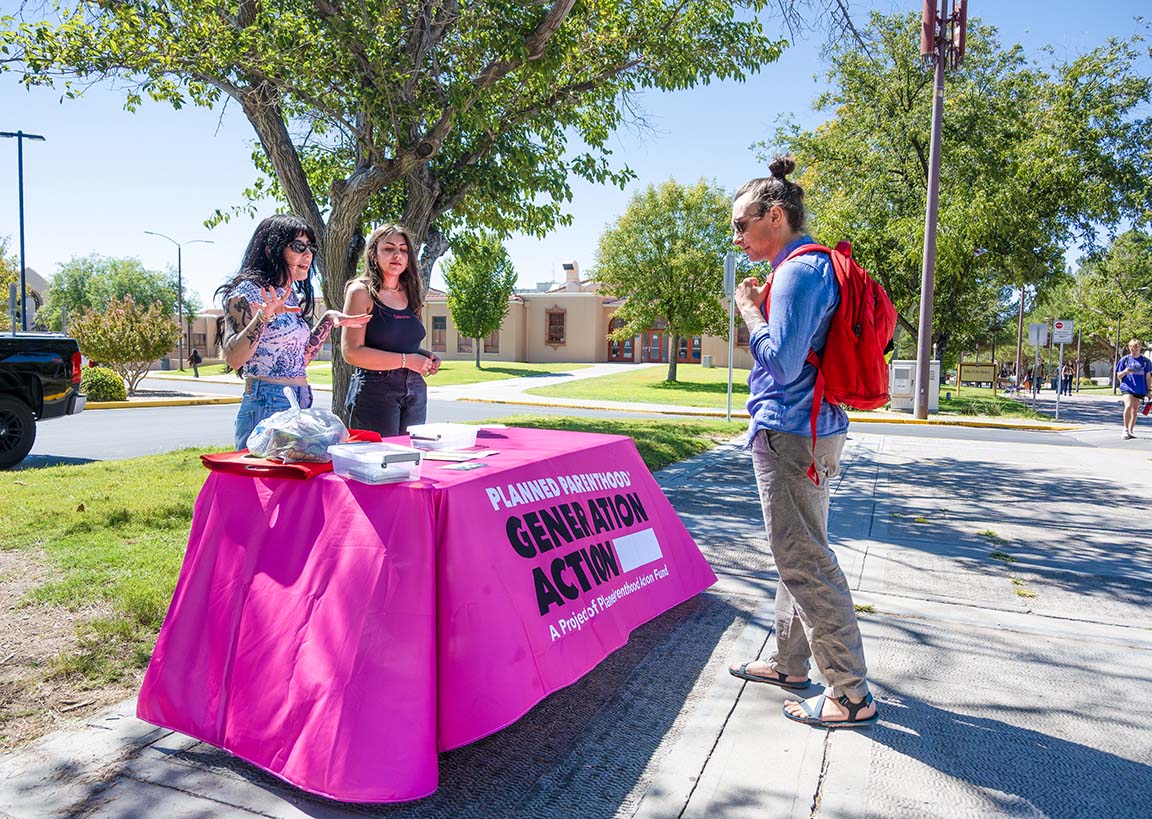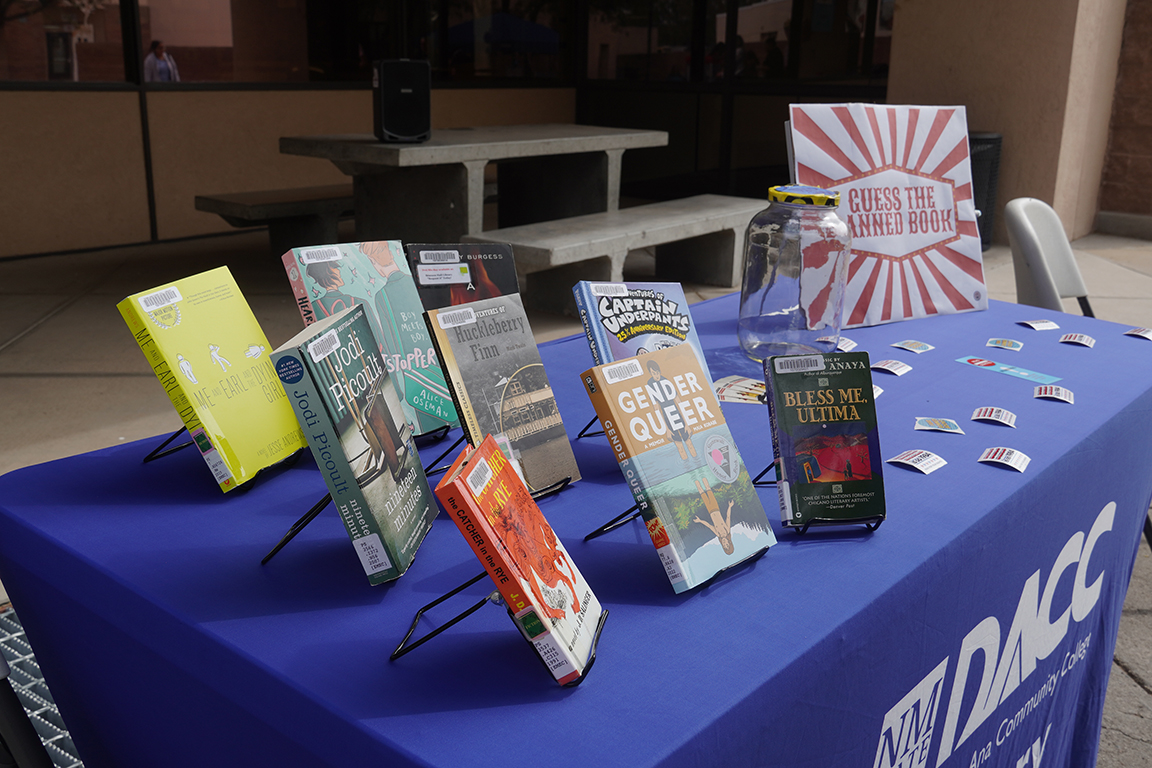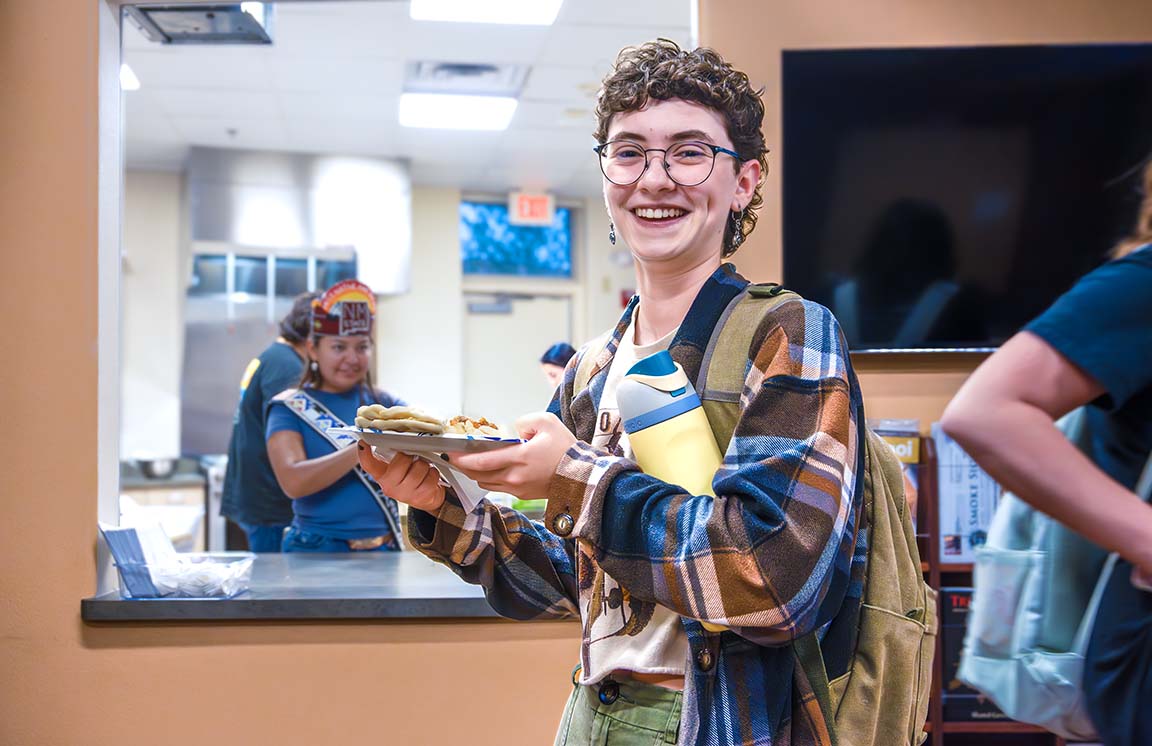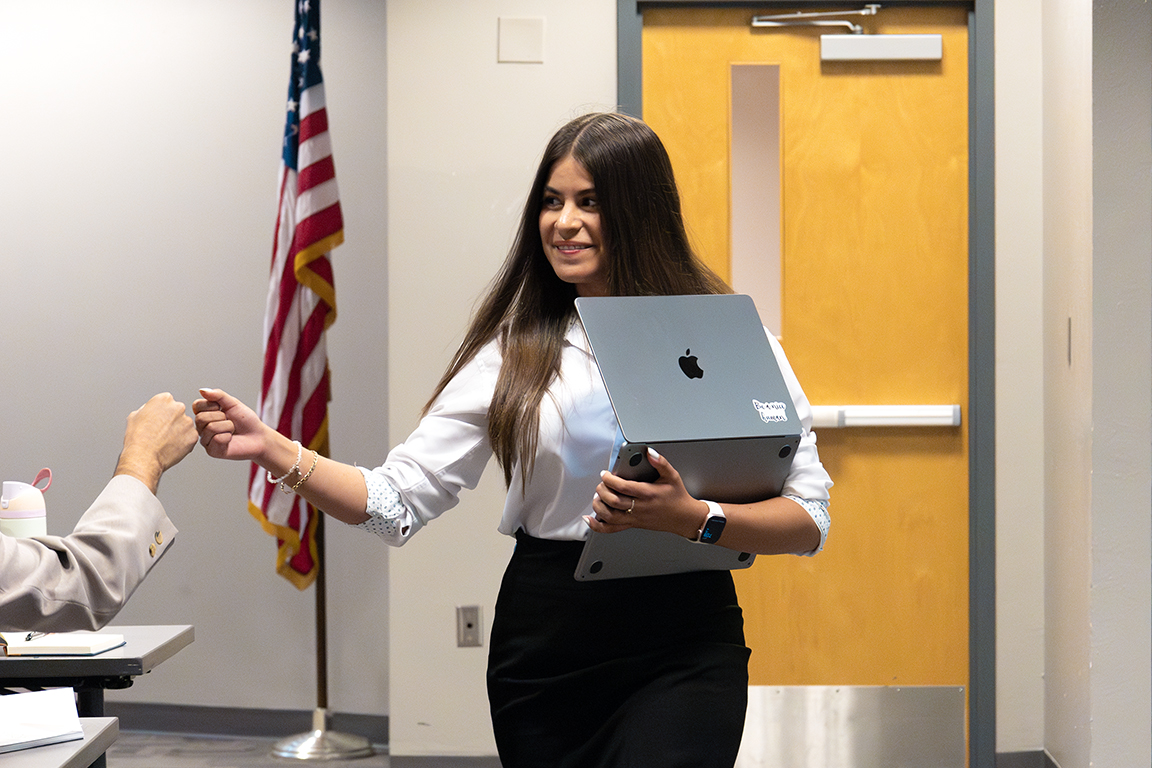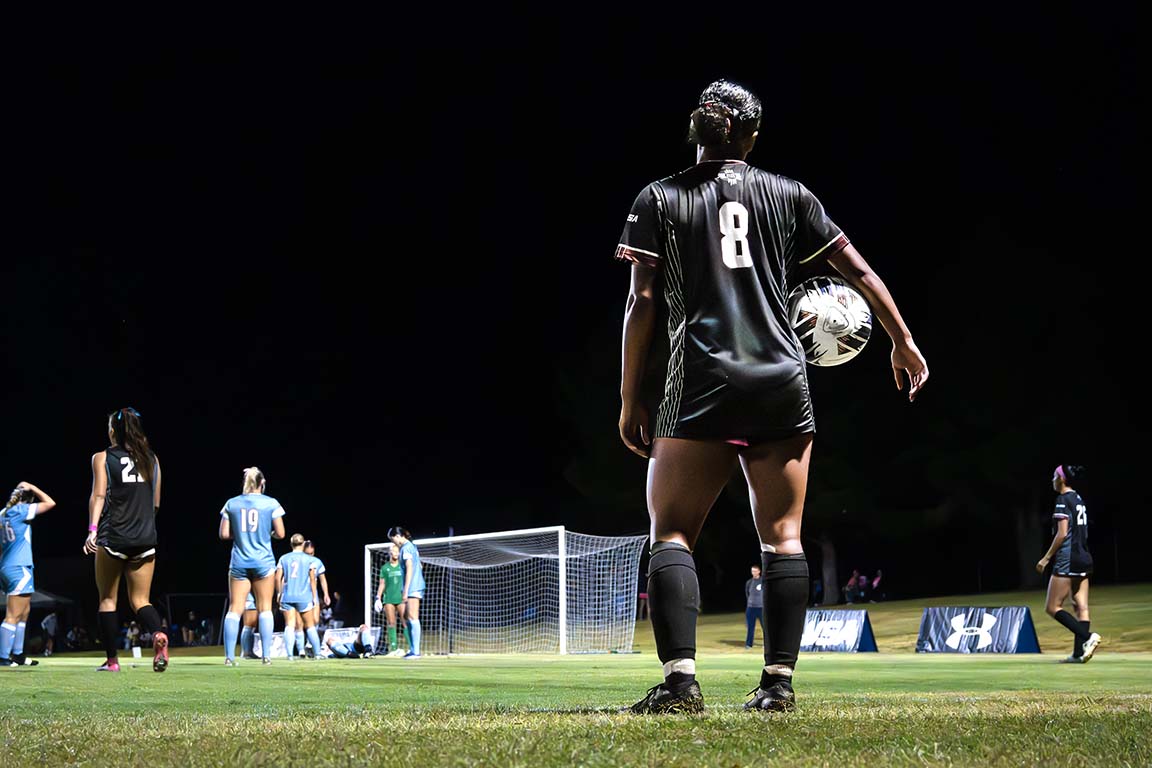Kevin Yee, an administrator from the University of Central Florida, hosted an artificial intelligence workshop on Aug. 30. at Milton Hall. His mission was to inform New Mexico State University’s faculty on the teaching and assigning of projects in a world with free and increasingly sophisticated AI.
As technology advances, students find new ways to streamline their academic workload. One such method is using artificial intelligence. With the help of AI-powered tools, students can complete assignments more quickly and efficiently than ever before.
However, as new, more powerful AI programs emerge, students take advantage of them and put little effort into their assignments. The value of merit and hard work is rapidly diminishing, and many schools don’t have a plan against the use of AI.
For this reason, many faculty members signed up to attend the workshop, as they want to not only know how to develop ways to prevent the misuse of AI, but also to properly educate students on how to use it ethically.
Yee explained the mentality of students today and the role AI plays in their academic lives.
“Too many of our students are wired in the right answer mentality of thinking instead of approaching thinking from a concept point of view,” Yee said. “AI is coming directly into their lives, and one of the things we’re going to have to think about is preparing students to use it right.”
Taking shortcuts to complete assignments quickly and easily can be tempting for a student. However, abusing products of AI like ChatGPT to complete students’ work is often unethical. It undermines the learning process and devalues the effort and hard work that goes into completing assignments.
According to Yee, abusing AI to complete assignments eliminates the opportunity for students to develop essential skills such as critical thinking, research, and writing. It also raises concerns about academic integrity and plagiarism. While AI can provide insights and suggestions, it cannot replace the human element of learning and understanding.
Furthermore, using AI for assignments can create an unfair advantage for students with access to these tools compared to those without. It can divide students who rely on their abilities and those dependent on technology to succeed. These concerns were crucial points of the AI workshop.
Niki Mott, an English department faculty member, voiced her concerns after attending the workshop.
“As I listened to this lecture, it came to me that the real basic reason for getting a college degree is to improve your thinking and specific skills,” Mott stated. “The social interactions, the human interactions, and getting to know different ways of thinking are things that we can fast gain in a group of learners and thinkers.”
With the drastic and sudden increase in students using AI, universities have but a handful of ways to help neutralize the misuse of the software. Just as there is “Turnitin” to catch plagiarism, there are detectors to catch AI-generated work like GPT Zero. However, using these programs could be risky, as studies have proven that they can’t be 100% reliable.
Yee used an analogy to describe the unique position AI is in right now and how it can change in the future.
“It’s the wild west out there, and we don’t have any horses,” Yee exclaimed. “So, what that means, I think, is that largely we’re on our own. We’re still exploring, trying to find answers, and much of what you will get today is attempts and answers. Some of these answers will work today and won’t work in two weeks because the AI keeps changing.”
During the workshop, Yee proposed a plethora of ways to help prevent the misuse of AI. One of the many ideas is to prioritize writing in an authentic environment. While some students may lack experience with in-class writing (on paper), this high-touch method of collecting and grading writing offers the best chance to eliminate academic misconduct.
Another option is to assign essays with heavy citations, which can help spot if an essay is AI-generated, as AI tends to use poor citations that a student might never think to use. A key option explored in the workshop is to format assignments beyond traditional essays.
Sometimes, there may be other ways to communicate thinking, analysis, or evaluation without a written essay. Examples may include interviews, mind maps, podcasts, vlogs, debates, and other applications of interactive techniques.
With these different ways to help prevent the misuse of AI in mind, there are still students who will try to exploit the software. AI will forever be a part of our lives, and with such a powerful tool at our disposal, students need to learn how to use it ethically and with integrity.
Tamara Anatska, an assistant English professor for multilingual students, shared her story about how her students used AI and how she addressed it.
“Last semester, there were several students who used AI,” Anatska explained. “So, what I did is I didn’t like to give a zero to a student right away. I just reached out to them. Then after the conversation, I just said, you know, I’m going to give you another opportunity, and I would like to see your voice in writing rather than reading something that’s generated by a machine.”
Just as Anatska is having a discussion with her students about the use of AI, the faculty members are encouraged to do the same. To point out to their students the surface-level ethical problem with misrepresenting their work if they choose to attempt it, as well as the deeper problem of “cheating themselves” by entering the workforce without adequate preparation for writing skills, a quality skill that is extremely valuable today.
Instead, students should treat AI as an assistant to help develop writing skills. There are a variety of programs that students can use. Grammarly and ProWritingAid are a few that can help develop the writing skills students need with AI.
While AI may seem convenient for managing assignments, it is important to consider the ethical implications of using such powerful technology. Ultimately, the value of education lies in the process of learning and growth, not in the outcome of a completed assignment.



